10 tips to conquer any long-course triathlon
What exactly does it take to complete a long-distance triathlon? Here we speak to a group of age-groupers who recently took on Ironman Wales and share their top 10 most important lessons learnt…

Sunday 11 September 2022 saw 2,000 athletes battle Ironman Wales, including the Wiggle x Hoka Flyers. On a choppy and, at times, rainy day in Tenby, they all finished their year-long journey by crossing the finish line. Here’s how they got on, plus their essential tips…
Who are the Hoka x Wiggle Flyers?
Wiggle and Hoka hosted a competition to find six random people to complete one of the hardest Ironman races in the world – Ironman Wales.
The prize? Kit, access to top coaches Susie and Rob Cheetham of Cheetham Coaching, strength and conditioning sessions with record-breaking ultra-runner Carla Molinaro, running technique masterclasses with Matt Bergin and nutritional advice from Team GB coach, Nick Anderson.
220 then followed their progress over the last nine months in the magazine.
But was nine months enough time to train? Did they put in the hours? And, crucially, did they make it down the red carpet to the finish line?
Let’s find out…
Pauline Green
Finish time: 15:52:58, 1st 60-64

“The hills were relentless but the support was incredible – even in the driving rain the hardy Welsh continued to clap and shout support and ring their bells. On the run, the long hill up out of Tenby was cruel but there at the top was coach Rob Cheetham.
“You’re first in your age group,’ he cheered. ‘Keep steady, keep conservative, you’ve got it!’ The zig-zag through town was endless and then the sign for the finish. Down the red carpet over the line. I’d conquered the Welsh Dragon.”
Sim Gill
Finish time: 15:16:01, 161st 30-34
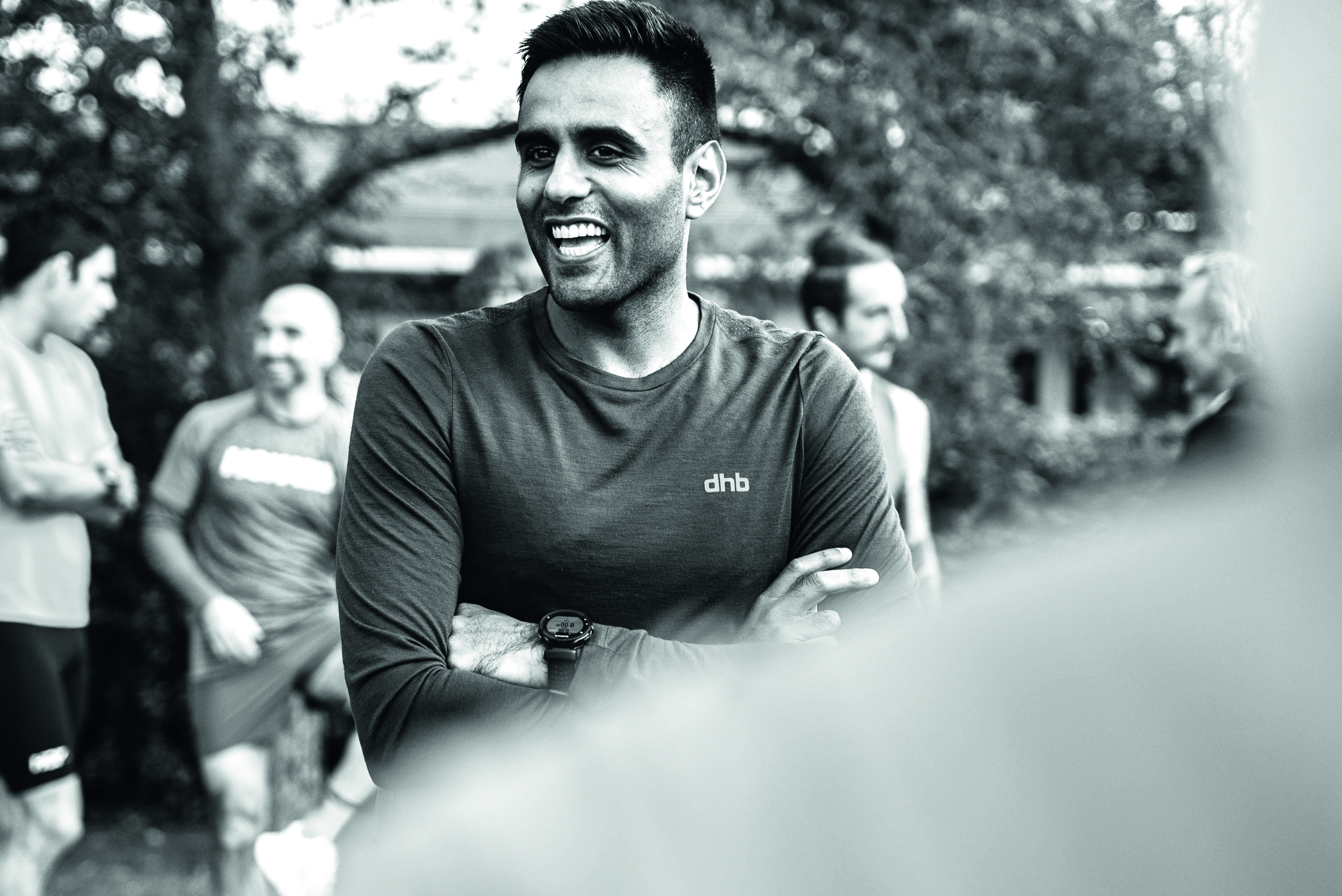
“The sea was choppy as hell and I just didn’t have the skill set to deal with it without impacting my time. I came out 20mins down on my goal time but with body full of sea water.
“Stomach issues ensued and I didn’t have extra nutrition to compensate. By the time I reached the run, I was super depleted. But I made it!”
Lisa Stockdale
Finish time: 14:04:59 11th 35-39
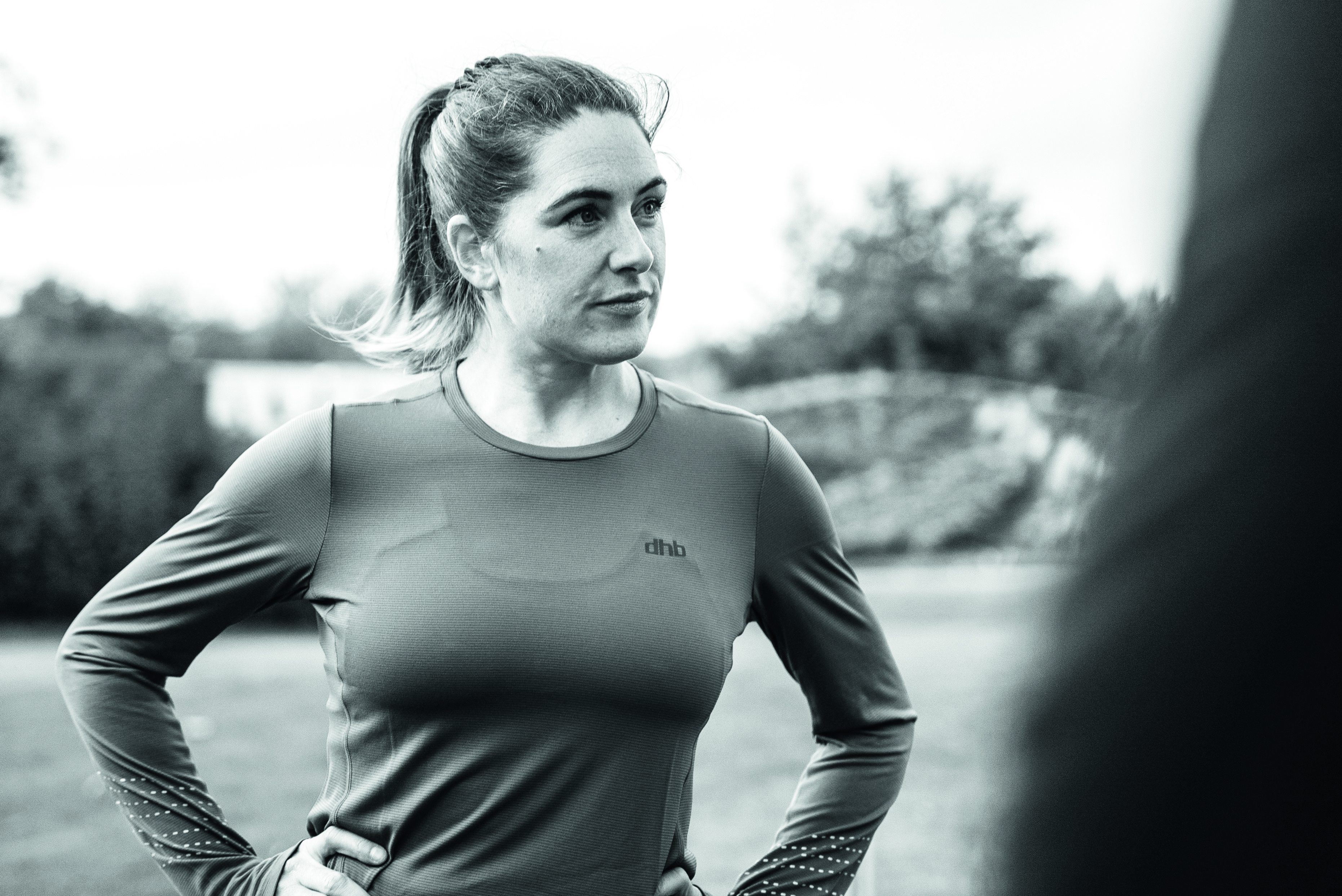
“A beautiful sunrise quickly turned into extremely choppy waters and people being pulled out of the swim all over the place.
“My nutrition on the bike was good (the tip of malt loaf and honey was appreciated) but I didn’t drink enough so started the run with a dehydration headache. Seawater-derived nausea meant lots of walking come the run!”
Geraint Jones
Finish time: 12:01:29, 70th 40-44

“The bad weather and suggestions of cancellation had the whole team on edge, so it was a relief to get to race day. We were up at 3:50am, which was worth it just to hear the crowds sing the Welsh anthem. It was emotional.
“After a good swim and strong start to the bike, my stomach began doing cartwheels, resulting in a portaloo stop. But I was happy with 12hrs.”
Watch the Hoka x Wiggle Flyers’ Ironman Wales race day
10 tips to conquer Ironman
The Wiggle X Hoka Flyers have been on a hell of a journey since winning the competition earlier in the year. Here’s what they’ve learnt along the way…
1. Get in the right gear
“Invest in good-quality gear,” Green advises. “The dhb Aeron wetsuit was a gamechanger and my trusty Hoka Cliftons will forever be my preferred shoes. But remember to avoid trying any new gear on race day.”
Of course, quality gear’s no use if it doesn’t fit you and your shape. That’s especially true on the bike where we’d certainly recommend undergoing a professional bike fit.
This is the discipline you’ll spend the most time on, so this is an expenditure that will more than pay dividends over time.
2. Plan to peak
“Don’t just plan your training – plan how your life will fit around it, too,” says Gill.
“It’s great to have your training panned for the upcoming week, but it may not work out if you don’t factor in other commitments. When I looked to the week ahead, I ensured that I knew if my sessions would be before work, earlier on a weekend due to family stuff and so on.”
3. Be specific
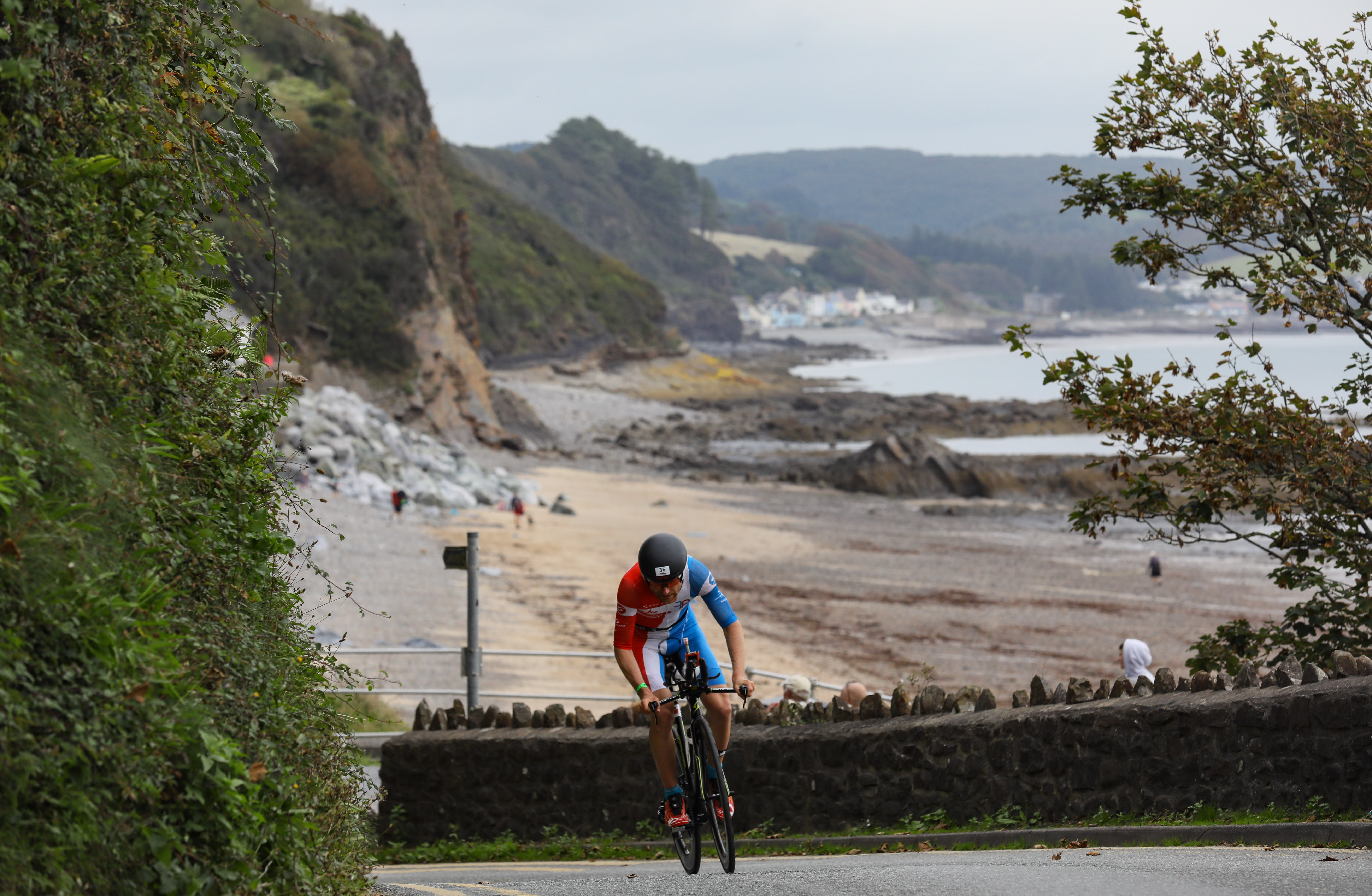
“Think carefully about which course you sign up for and train specifically for that course,” says Stockdale. “Ironman Wales was very hilly, and so demanded plenty of bike and run hill training.”
This specificity is key whichever race you sign up for. Open-water sprint? Practise outdoors? Long-course bike? Weekly rides over 5hrs are essential. This specificity will really pay off come your race.
4. Seek out guidance
“Find a club or coach to guide you,” Jones recommends. “My training approach in the past has been to go full bore at each session. Having a coaching team ensured I built steadily towards my A-race, holding me back from going too hard in the first few months of training so that I peaked at the right time.”
As the Cheethams showed with the Flyers, your coach doesn’t have to be all about the one-on-one physical time. Lockdown left us with a mastery of Zoom, Skype… which is incredibly handy to hook up with your triathlon teacher, no matter where you are in the world.
5. Treat your body
“Have regular sports massage,” says Green. “It’s painful but it really helps.”
As well as reducing aches and pains, regular massage has been shown to improve circulation, energy and alertness, albeit once the pain of a deep massage has eased! Regular massage is also associated with improved immune function.
6. Know the course nutrition brands
“When it comes to nutrition, everyone has certain brands they get on well with. It’s why we train with them so we’re confident they’ll work come the race,” ways Gill.
“However, I’d suggest as a back-up practising with the on-course nutrition if anything goes wrong.”
7. Be prepared
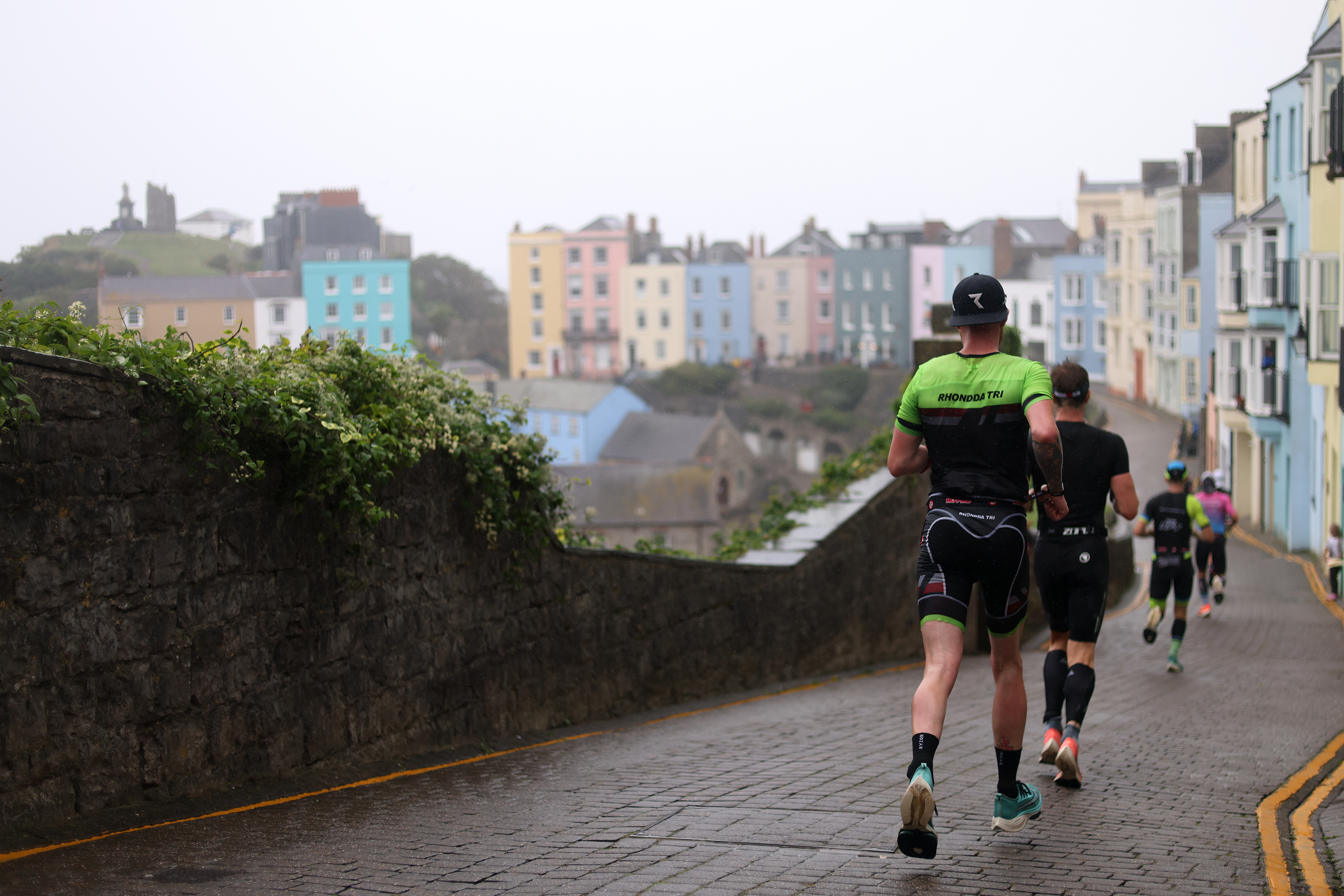
“When it comes to your event, plan for all weathers,” says Stockdale. “Even if the forecast looks good, things can change really quickly; just a pair of arm warmers and a thin gilet will save you if things get cold.
“Also, if there are technical descents on the bike route, take extra time and don’t risk a crash. There were quite a few nasty ones at Ironman Wales.”
8. Stock up on solids
“I’d highly recommend incorporating solid food on the bike to help prepare your stomach for the run,” Jones suggests. “On the run is when you’re likely to be relying more on gels and energy drinks.”
To that end, we’d recommend bagging yourself a copy of Feedzone Portables. It’s a fine resource for on-the-fly recipes.
9. Rest and recuperate
“Factor in rest afterwards,” advises Stockdale. “And if you’re lucky enough to have friends and family supporting, spend some time with them afterwards and reflect on what you’ve achieved and get their stories too. I certainly wouldn’t recommend going back to work the day after!”
Also, try and knock some protein back after, as well as carbohydrates, albeit go for savoury rather than sweet carbs as you’ll be more than sick of sugars by the finish line.
10. Just do it!
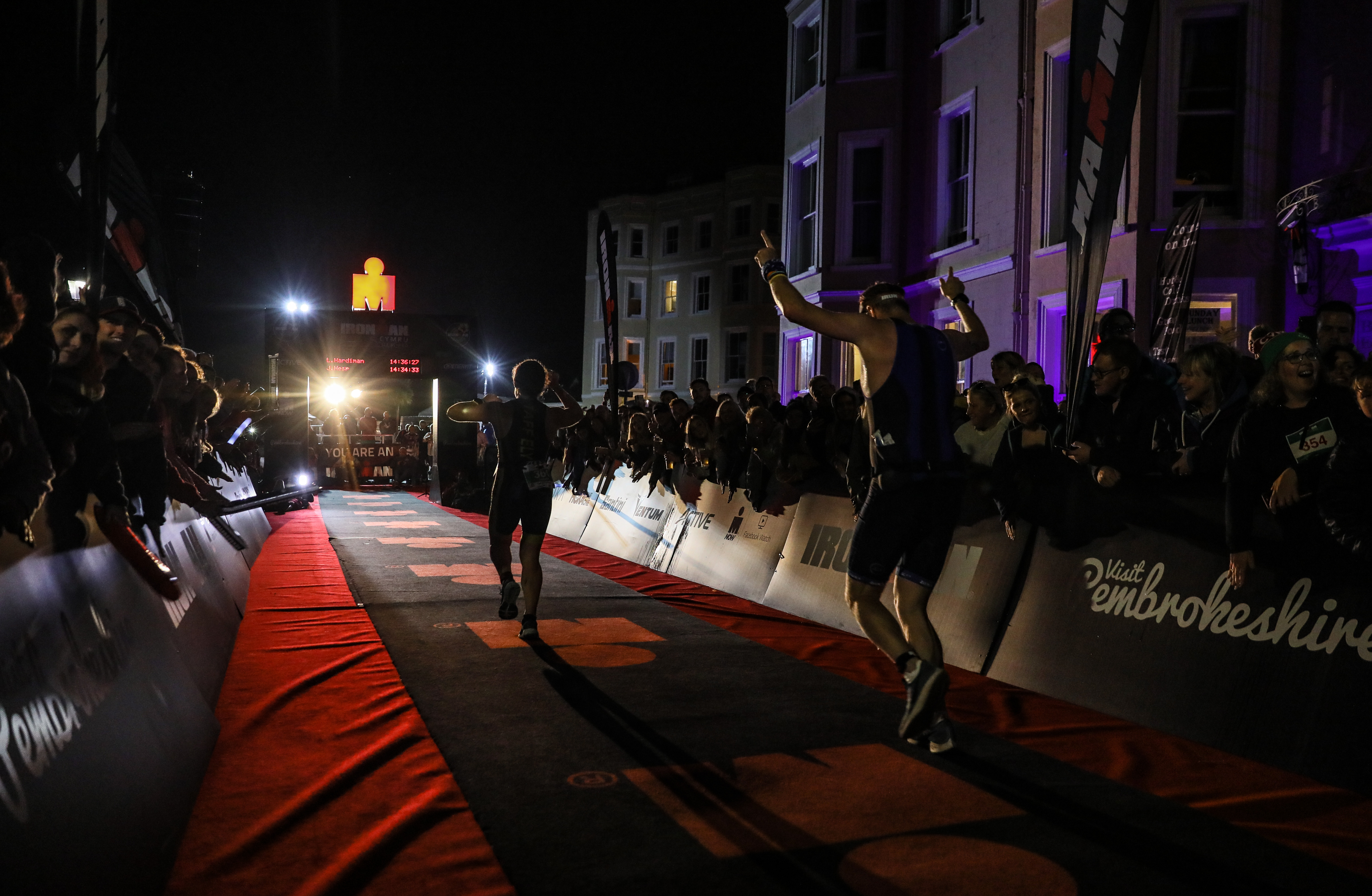
“In the words of a certain famous sports brand, just do it,” beams Gill. “The feeling of crossing that line is amazing and I just wish I’d started this journey earlier, back in 2017 when this first became a goal.
“If you want to do something, create a plan, a realistically time frame and just get at it!!”
Top image credit: Charlie Crowhurst/Getty Images for Ironman




